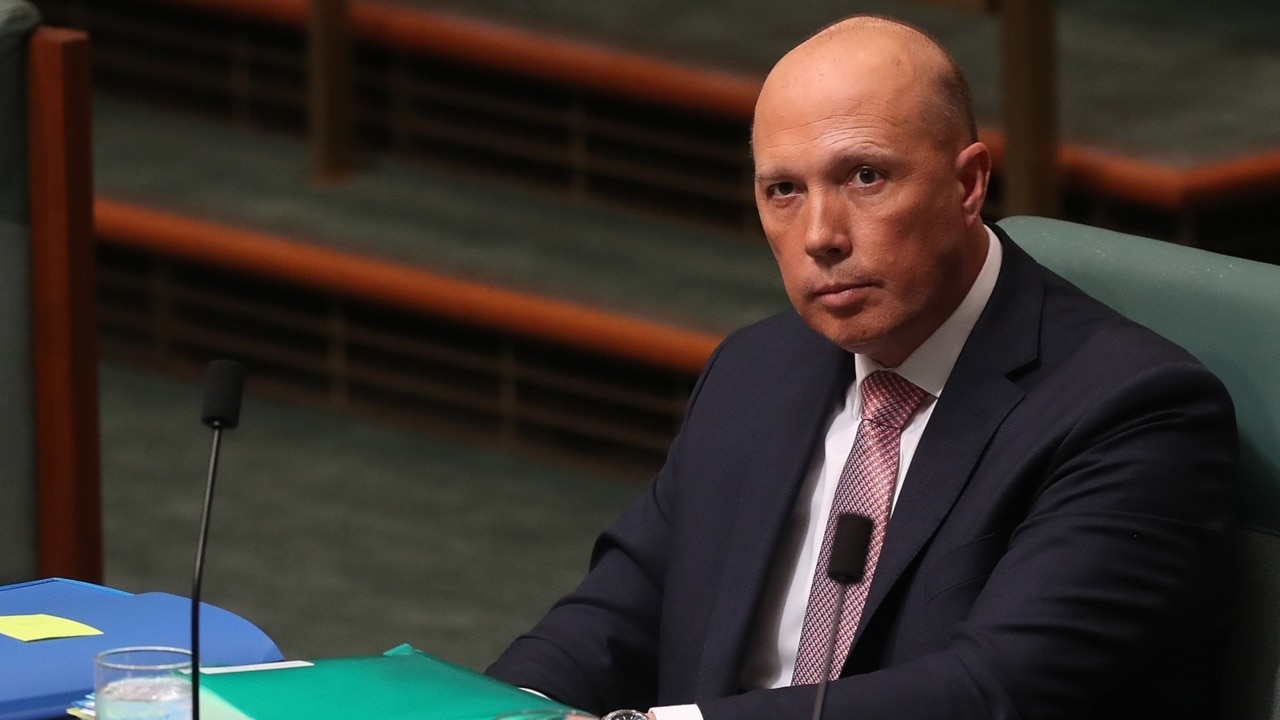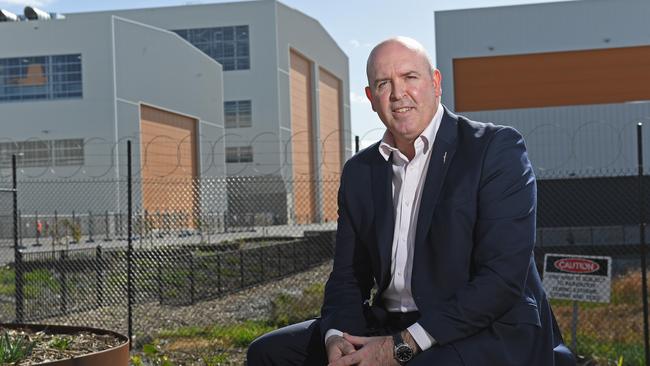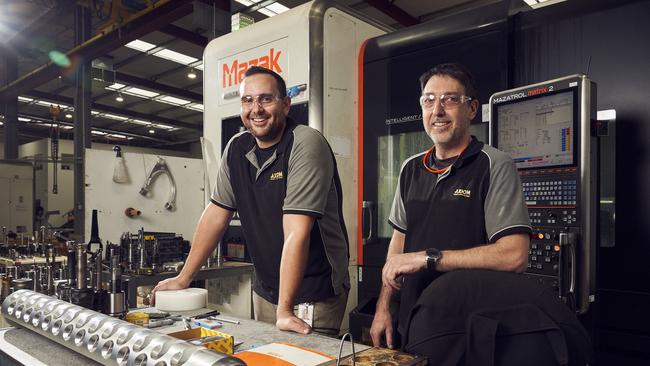Red tape, skills shortage in defence industry heavyweights’ sights
Ask South Australia’s defence industry leaders what’s holding them back and they all have one answer in common.

SA News
Don't miss out on the headlines from SA News. Followed categories will be added to My News.
Small businesses hoping to break into Australia’s growing defence industry risk getting bogged down in daunting paperwork and regular audits that force many companies to hire full-time staff just to handle.
Industry heavyweights are now calling for red tape to be slashed to encourage innovative businesses with few resources to take on big defence projects.
A looming skills crisis is also threatening the industry as huge multinational companies scramble to find Australian workers with shipbuilding knowledge and experience.
BAE Systems Australia chief executive Craig Lockhart said many innovative local businesses feel daunted at the thought of entering the defence industry because of “onerous” requirements.
“Because of the probity around the use of taxpayer money, there’s a very transparent process that is demanded in supply chain engagement,” he said.
Many companies are forced to meet myriad terms and conditions around IP, step-in rights, data transparency and cyber assurance.
“For many small to medium sized suppliers, these can be really, really daunting and sometimes the expense of being able to take that on outweighs the return they might get,” Mr Lockhart said.
“The process isn’t designed to discourage but, equally, it’s not designed to encourage and make it easy for people.”

Large prime contractors are often forced to step in to help them meet the long checklist of demands.
BAE Systems, which has nearly 1700 companies pre-registered to compete for work on the Hunter-class frigates program at Osborne, launched its Global Access Program in 2012. The program gives local suppliers opportunities to break into the company global supply chain.
Australian Industry Defence Network boss Brent Clark said it could take some businesses more than a year to land even a small contract, due to “longwinded” approval hurdles with “many, many steps” to ensure value for taxpayer money.
“It is absolutely appropriate that Defence does due diligence to check this but … their process requires their procurement officers to repeat this same check multiple times as various approval signatures are hunted,” Mr Clark said.
Last December, the federal government introduced measures to reduce lengthy tender processes by up to a year.
The Defence Department also provides specialist business advice to small and medium enterprises through the Office of Defence Industry Support.
Wingfield company Axiom Precision manufactures highly complex parts for Australia’s F-35 Joint Strike Fighter. General Manager Craig Maynard said it took about six years to land a big project after first starting in the defence industry.
“One of the biggest challenges was actually getting in touch with the right people and convincing them that you weren’t a high-risk supplier,” Mr Maynard said.
The company employs two full-time staff to maintain its crucial AS9100 certification – a globally recognised quality management system for the aerospace industry.

Mr Lockhart sounded the alarm over Australia’s skills shortage, revealing his company alone will need 10,000 systems engineers over the next decade – but the country is only on track to meet a third of that target.
“If you were to ask all of the CEOs that sit within the Australian naval shipbuilding industry … we would all tell you that skills is our number one risk,” Mr Lockhart said.
“The lack of foreign students flowing into universities means that we’ve just got a smaller pool of people to pick from and we are competing with lots of other countries, not just within our own sector.”
The AUKUS nuclear-powered submarine program is set to place additional pressure on the industry to unearth workers, particularly with nuclear skills.
“If we don’t work as an industry to government partnership in this and generate more people, then every new program will bring an additional layer of challenge and risk,” Mr Lockhart said.
The BAE boss said a comprehensive national strategy was needed, with a focus on converting more primary and secondary students into science and STEM subjects.
“It’s the whole thing that we need to think about and maybe it’s time for a grassroots review of how do we tackle the problem together as a nation,” he said.
BAE has more than 250 young people in early career programs and is expecting to fill about 110 graduate roles next year in 2023.
The average age of its Osborne workforce is just 35, compared with the average age of 57 in UK shipyards.
gabriel.polychronis@news.com.au
More Coverage
Originally published as Red tape, skills shortage in defence industry heavyweights’ sights





